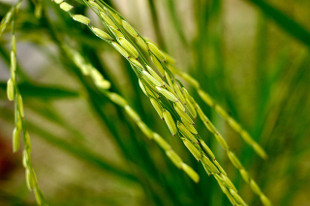 FLICKR, INTERNATIONAL RICE RESEARCH INSTITUTEThe newly unraveled origins of domesticated rice tell the story of early farming in Asia. A study led by researchers from the University of Manchester, U.K., suggests that rice was domesticated in three different regions of Asia, leading to the four main varieties available today. The results were published yesterday (November 2) in Nature Plants.
FLICKR, INTERNATIONAL RICE RESEARCH INSTITUTEThe newly unraveled origins of domesticated rice tell the story of early farming in Asia. A study led by researchers from the University of Manchester, U.K., suggests that rice was domesticated in three different regions of Asia, leading to the four main varieties available today. The results were published yesterday (November 2) in Nature Plants.
The primary varieties of domestic rice are indica, japonica, aus, and aromatic, selected for various traits that make cultivation easier—for instance, rice that grows vertically and stays on the stalk when ripe. To trace their roots, geneticist Peter Civán and colleagues focused on the genomic regions corresponding to these traits. Using data from a 2012 Nature paper, they re-analyzed DNA from 1,083 varieties of modern rice and 446 samples of wild rice.
Previous work suggested that the traits unique to domesticated rice originated with a single group of ancestors in southern China, where japonica was first cultivated. Civán’s team instead found that early farmers selected for similar traits in three different places—a convergent domestication process that resulted in indica, japonica, and aus rice. “Aromatic varieties, ...




















